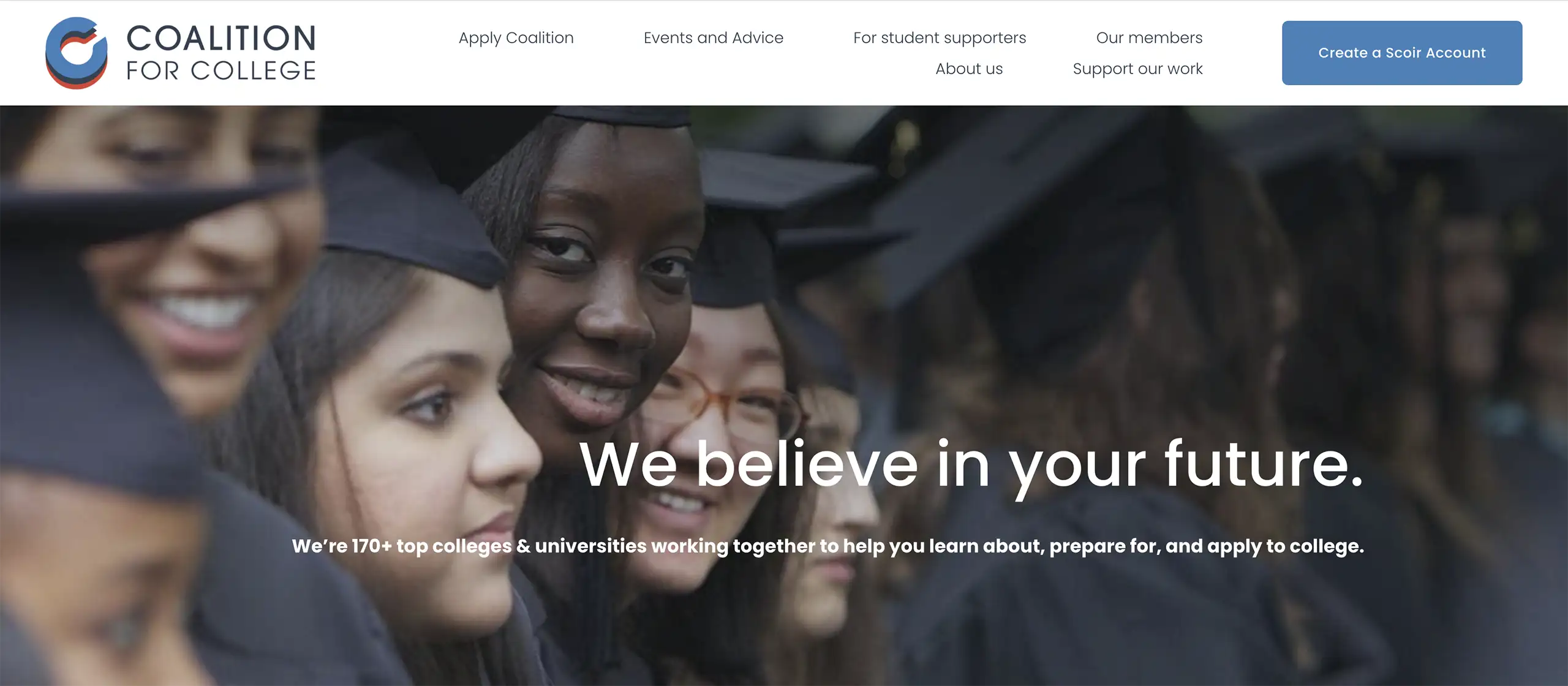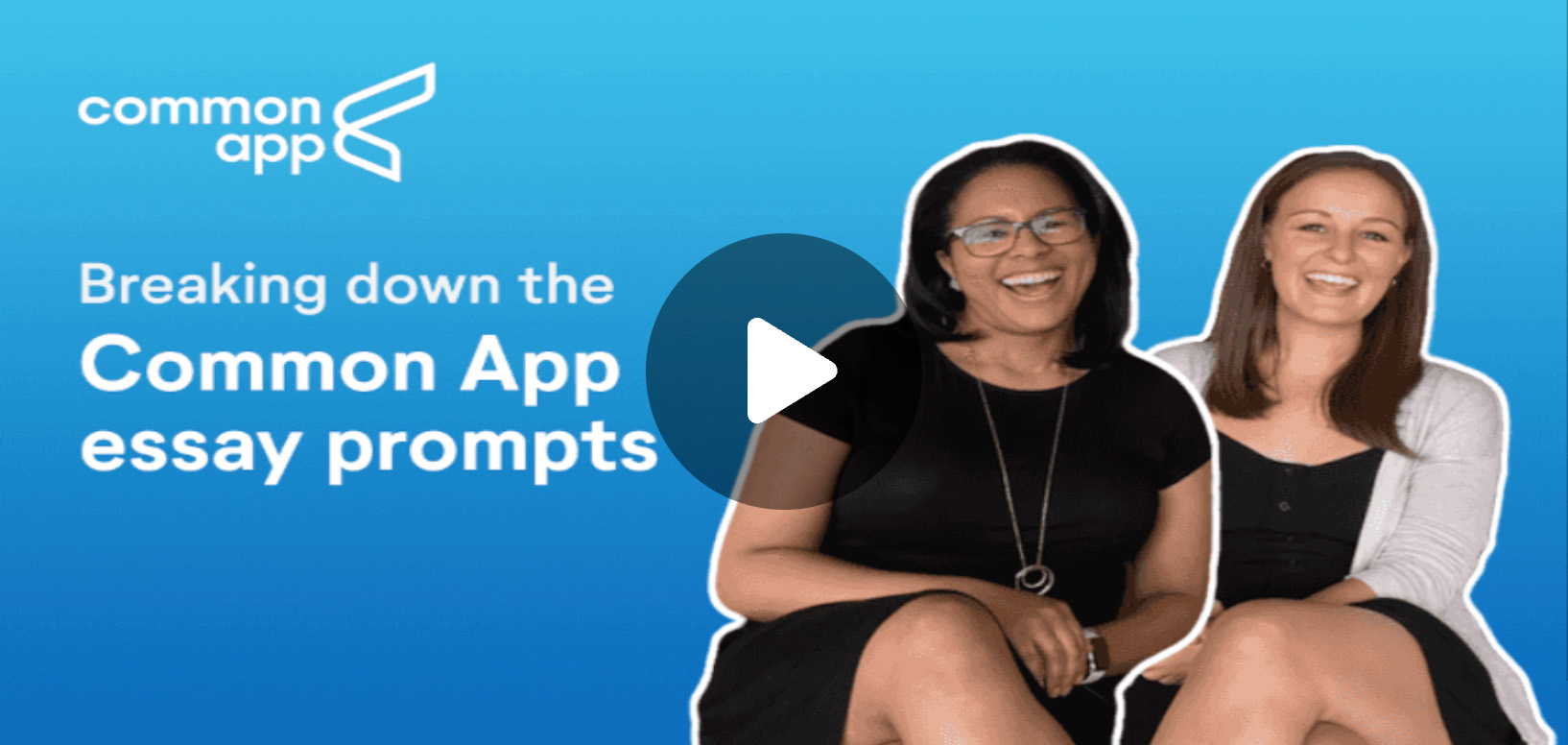Harvard Outreach Newsletter
144th Issue, August 2025
In this issue:
- Applying to US colleges for entry in 2026? Start your application now!
- Summary of the two main application methods: the Common Application Form, and the Coalition for College
- Differences between the US and UK university application systems
- Introduction to the personal essay
- Harvard supplementary essays
Applying to US colleges for entry in 2026? Start your application now!

The Common Application Form (Common App) for US colleges went live on 1st August, so if you are at the end of Year 12 (England & Wales), S5 (Scotland), or Year 13 (N. Ireland) and intend to apply to US colleges for entry in 2026 (Class of 2030), you should now register on the Common App website (or its alternative, the Coalition for College) and put together as much of your application material as possible over the summer.
If you believe you have a legitimate reason to take a gap year, you may wish to apply this year, at the same time as your peers, and then apply to defer entry for one year if you are offered a place. Permission to defer enrolment is considered on a case by case basis and is not guaranteed. Alternatively, you may wait to apply in the actual year of intended enrolment.
Last month we outlined the two main application methods, and here is a recap:
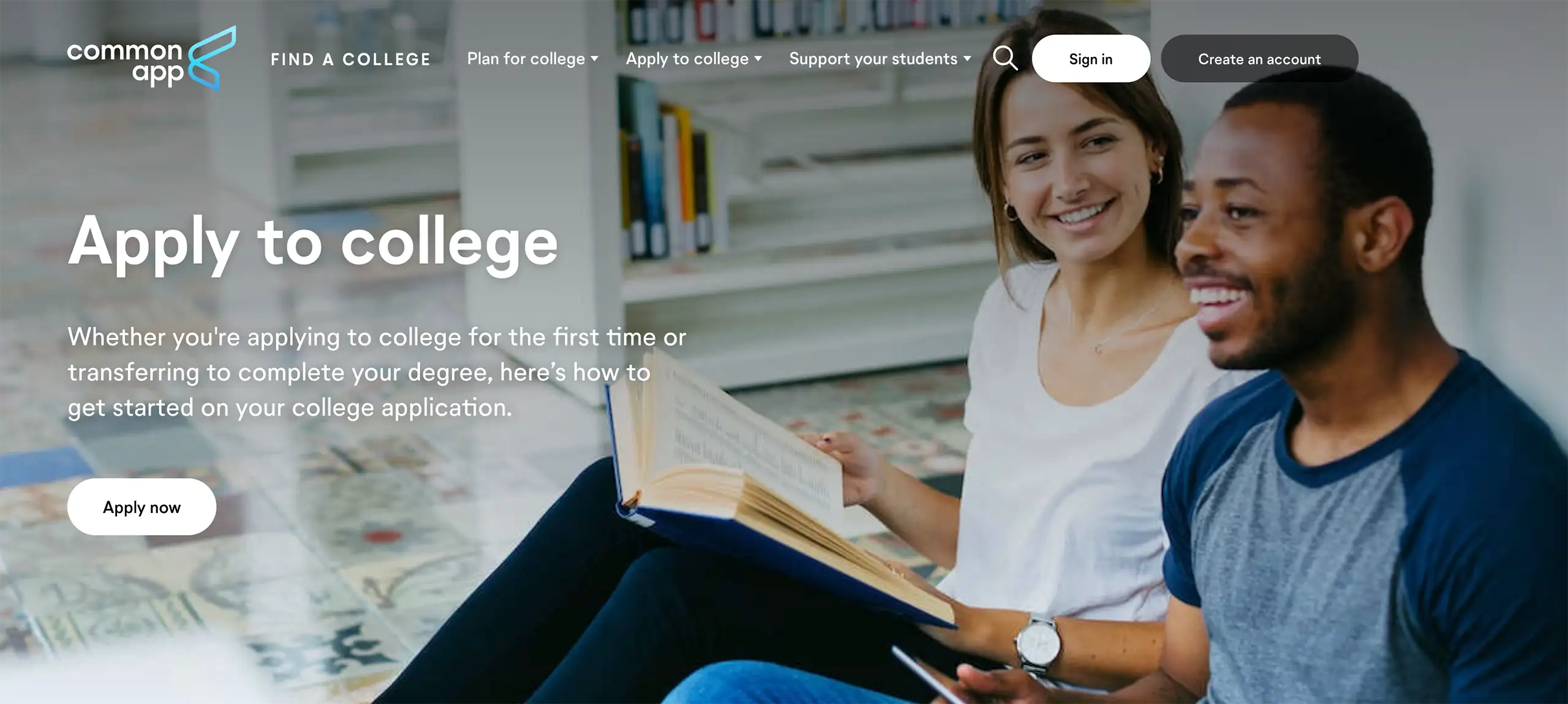
The Common App is used by over 1,000 institutions, including some outside the US, so most applicants are likely to use this method.
To familiarize yourself with the Common App if you are a first-year student (i.e. a student who is applying to a US college for the first time), take a look at the two-minute video ‘What is Common App?’ on the webpage ‘Application guide for first-year students.’
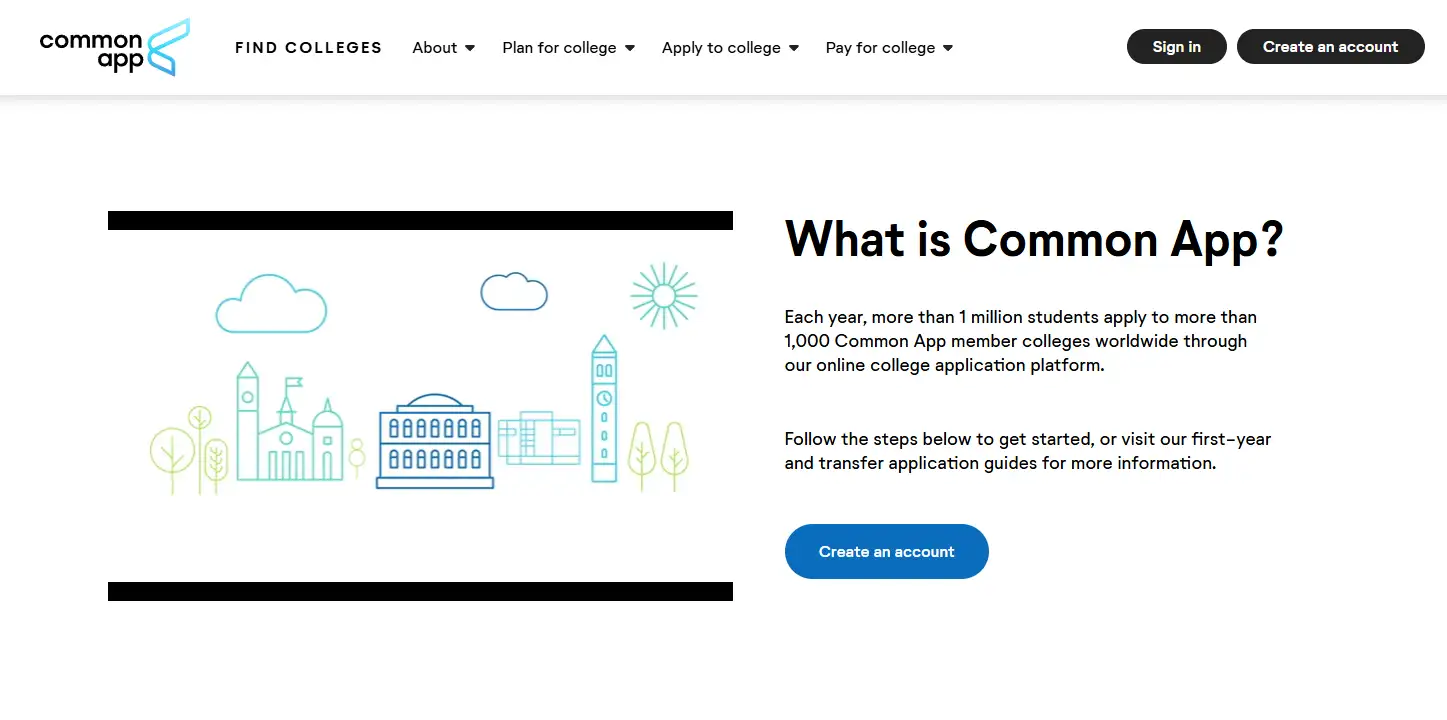
Then scroll down the page and follow the Common App’s seven-step guide to submitting an application:
Gather materials – the information you’ll need to complete your applications.
Create an account – get started at any time.
Add colleges – start building your My Colleges
Engage supporters – collaborate with teachers, advisers and more.
Understanding requirements – keep track of each college’s unique application requirements.
Plan essays – organise and plan for your writing prompts.
Submit your application – review and submit your application.
The US/UK Fulbright Commission website also provides Common App guides for both teachers and students. To access the guides, go to the webpage ‘Step 3 – Applying for an undergraduate degree’ and scroll down the page until you reach the heading ‘Our Common App guides’ (see below). Then click on either of two PDF icons for ‘teachers’ or ‘students.’
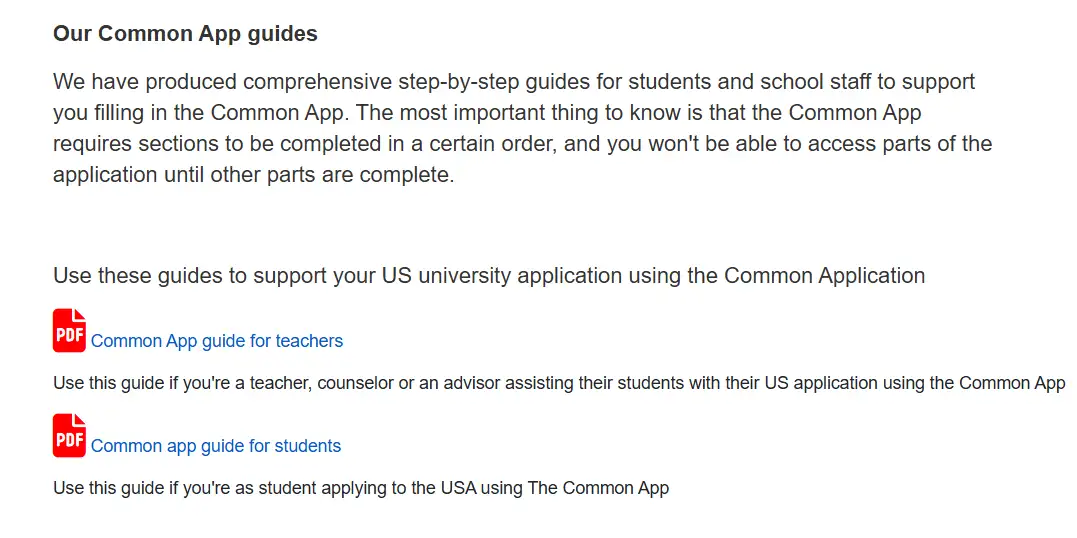
The Coalition for College was started in 2016 as an alternative to the Common App, and currently has 133 colleges signed up, including Harvard. A particular feature of the Coalition is that it partners with colleges that offer meaningful financial support to low-income students. While the Common App helps a broader base of students navigate the college application process, the Coalition offers more resources for applicants of limited financial means.
In 2022 the Coalition moved to a new online platform called Scoir (pronounced ‘score’) in order to
‘…simplify the college admissions process. On the Scoir platform, students can search and discover colleges & universities, collaborate with people who support them, and apply to Coalition schools that share a commitment to graduating students on time and with low or no debt.‘ (Coalition website)
Unlike the Common App, there is no specific opening date for Coalition applications. Every member college determines its own application cycle, but most open their applications in July or August.
Full details of Harvard’s application requirements for both the Common App and the Coalition can be found on this webpage.
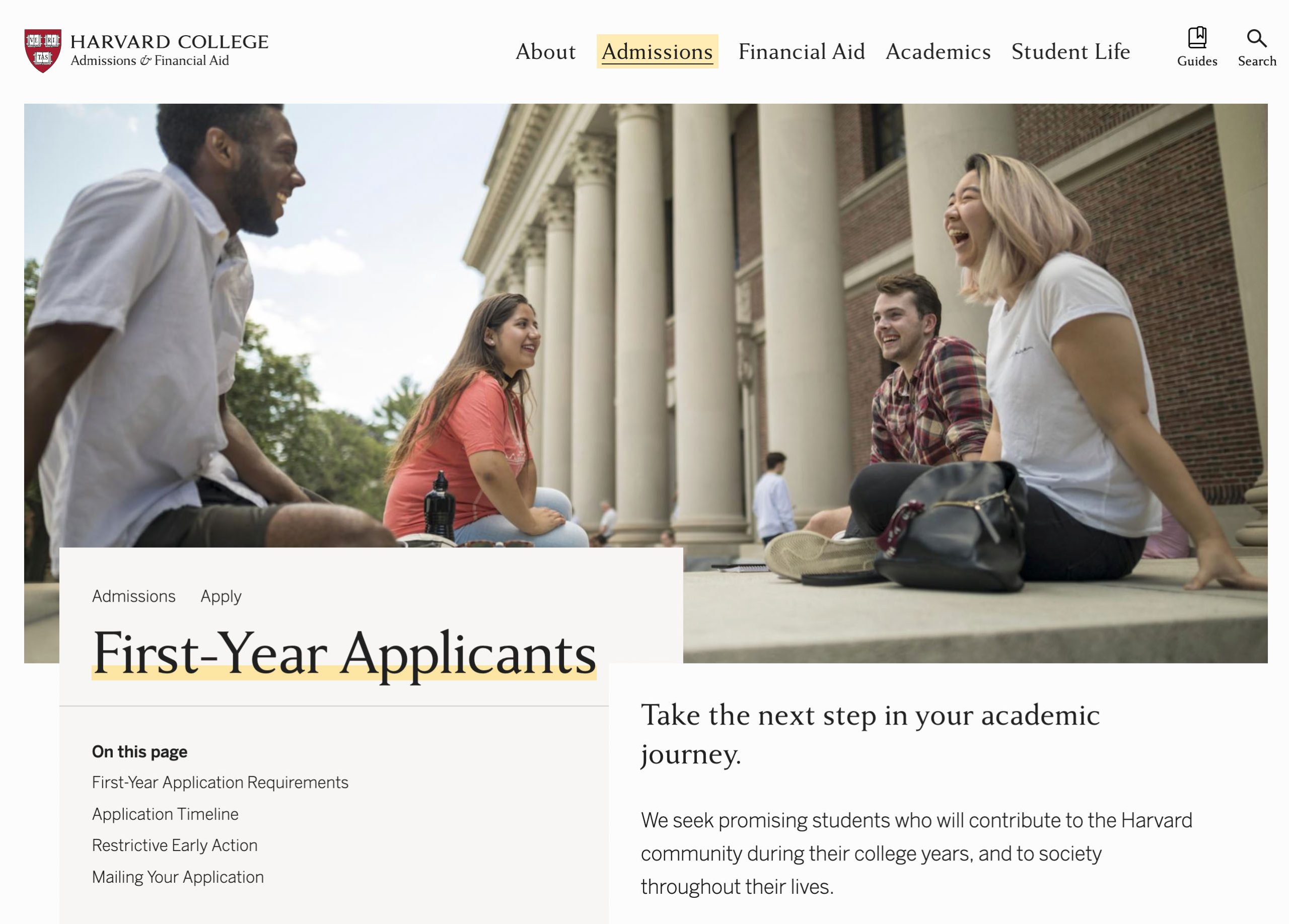
Differences between US and UK university application systems
Both of the main US application methods differ from the UK’s UCAS system in the following ways:
- You send your US application directly to the American colleges to which you are applying, whereas you have to forward your completed UCAS form to your school before it is submitted.
- In the US system you apply to the college as a whole, not to a specific department, so your application will be assessed by the undergraduate admissions office, not by departmental tutors.
- You can apply to a maximum of five UK universities through UCAS, but there is no limit to the number of US colleges to which you can apply, and you may apply to both the US and UK systems at the same time.
- If you are applying to Oxford or Cambridge, you can apply to one or the other, but not both, whereas in the US you can apply to as many top colleges as you wish. (However, if you are applying in the Early Action round, check the college website to see if there are any rules about how many/which colleges a student can apply. For an explanation of the meaning of Early Action, see the October 2024 edition of this newsletter).
- About 75% of the colleges that use the two US application methods also require you to fill out a supplementary form, whereas British universities do not usually require additional material.
- Test requirements differ for US colleges and UK universities. Some British universities require applicants to sit additional subject-specific exams as part of the application process (e.g. for specialised programmes in mathematics, engineering, law or medicine). Many selective US colleges have reinstated their standardised test requirements (SAT or ACT) while others continue to be test optional. Though not universally required, Advanced Placement tests can help applicants demonstrate aptitude for particular subjects. Always check individual university or departmental requirements for both the US and the UK.
- Offers of admission to US colleges are not conditional on attaining specific grades or scores in your final A-Level, Scottish Higher or IB exams – but be warned! there is still an expectation that you will achieve grades roughly in line with those predicted, or your offer of admission may be withdrawn.
The personal essay
Most students find that the personal essay (equivalent to the UCAS Personal Statement) is the most challenging and time-consuming part of the US college application process.
The essay topics that are being used this year by both application platforms are given below. You will notice that all the topics prompt you to talk about yourself. This is a fundamental difference with the UCAS Personal Statement, which asks you to explain why you are well prepared to follow a particular course of study. But when you apply to a US college, it is not to study a specific subject, and for the first 18 months you will have the opportunity to explore many different topics before deciding on your ‘major’ (sometimes known as a ‘concentration’, or main area of study). The purpose of the personal essay is to enable Admissions Officers to find out a bit more about your ambitions, interests, opinions, achievements and challenges.
The suitability of the various essay topics to your personal story will be one of the factors that will help you decide which of the application platforms to use. You should try to identify a prompt that will enable you to describe your unique qualities as an individual – something that will set you apart from other candidates. Then plan the structure of the essay and write several drafts. There is an abundance of online material to help you – simply type ‘US college admission essays’ into your search engine.
In addition to the main essay topic, most colleges have supplements in which they require further short essays or memos – see the end of this newsletter for Harvard’s 2025-26 supplementary essay prompts. Check out what is required by all the colleges on your shortlist before you start writing, as different colleges sometimes ask similar supplementary questions, enabling you to adapt the same answers.
Common App personal essay
The Common App essay titles for 2025-26 are the same as last year. The essay must be a maximum of 650 words in length.
Here is the full set of essay prompts for 2025-26
- Some students have a background, identity, interest or talent that is so meaningful they believe their application would be incomplete without it. If this sounds like you, then please share your story.
- The lessons we take from obstacles we encounter can be fundamental to later success. Recount a time when you faced a challenge, setback or failure. How did it affect you, and what did you learn from the experience?
- Reflect on a time when you questioned or challenged a belief or idea. What prompted your thinking? What was the outcome?
- Reflect on something that someone has done for you that has made you happy or thankful in a surprising way. How has this gratitude affected or motivated you?
- Discuss an accomplishment, event or realization that sparked a period of personal growth and a new understanding of yourself or others.
- Describe a topic, idea, or concept you find so engaging that it makes you lose all track of time. Why does it captivate you? What or who do you turn to when you want to learn more?
- Share an essay on any topic of your choice. It can be one you’ve already written, one that responds to a different prompt, or one of your own design.
College Essay Advisors website has produced this useful guide on the 2025-26 Common App essay prompts.
You can also find tips on how to approach the essay from this video, which you will find towards the bottom of the Common App ‘First-year essay prompts’ page.
The Coalition personal essay
The Coalition essay prompts for 2025 -26 are the same as last year:
- Tell a story from your life, describing an experience that either demonstrates your character or helped to shape it.
- What interests or excites you? How does it shape who you are now or who you might become in the future?
- Describe a time when you had a positive impact on others. What were the challenges? What were the rewards?
- Has there been a time when an idea or belief of yours was questioned. How did you respond? What did you learn?
- What success have you achieved or obstacle have you faced? What advice would you give a sibling or friend going through a similar experience?
- Submit an essay on a topic of your choice.
Recommended essay length: 500 – 650 words.
College Essay Advisors website has produced this useful guide on the 2025-26 Coalition essay prompts.
The Coalition website also provides the following resources for writing your essay.
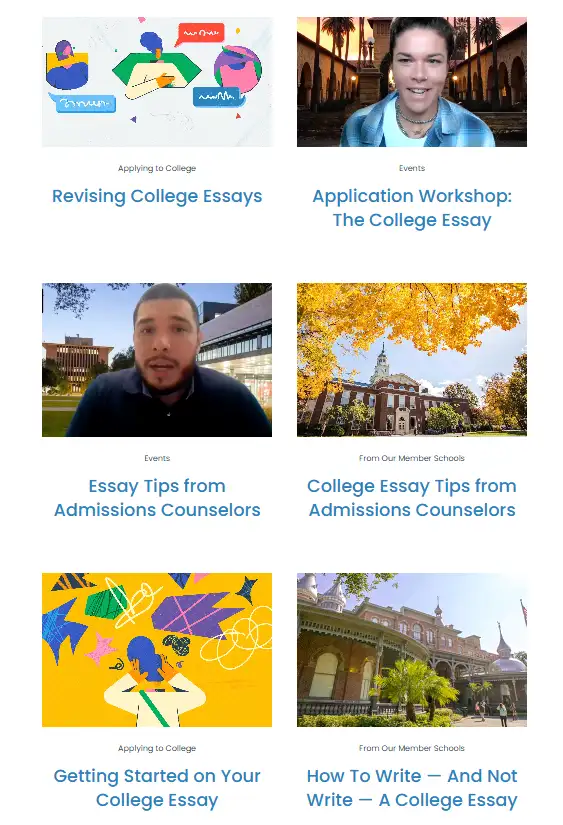
Harvard supplementary Essays
All first-year applicants to Harvard, regardless of whether they are applying via the Common App or the Coalition* must complete a Harvard supplement with five required short-answer questions, each with a 150 word limit.
- Harvard has long recognized the importance of enrolling a diverse student body. How will the life experiences that shape who you are today enable you to contribute to Harvard?
- Describe a time when you strongly disagreed with someone about an idea or issue. How did you communicate or engage with this person? What did you learn from this experience?
- Briefly describe any of your extracurricular activities, employment experience, travel, or family responsibilities that have shaped who you are.
- How do you hope to use your Harvard education in the future?
- Top 3 things your roommates might like to know about you.
*Please note that the Harvard supplement is separate for the Coalition application, so you must submit both the application AND supplement for your application to be considered complete.
If you enjoyed reading this newsletter and wish to receive future newsletters, click here to subscribe.
